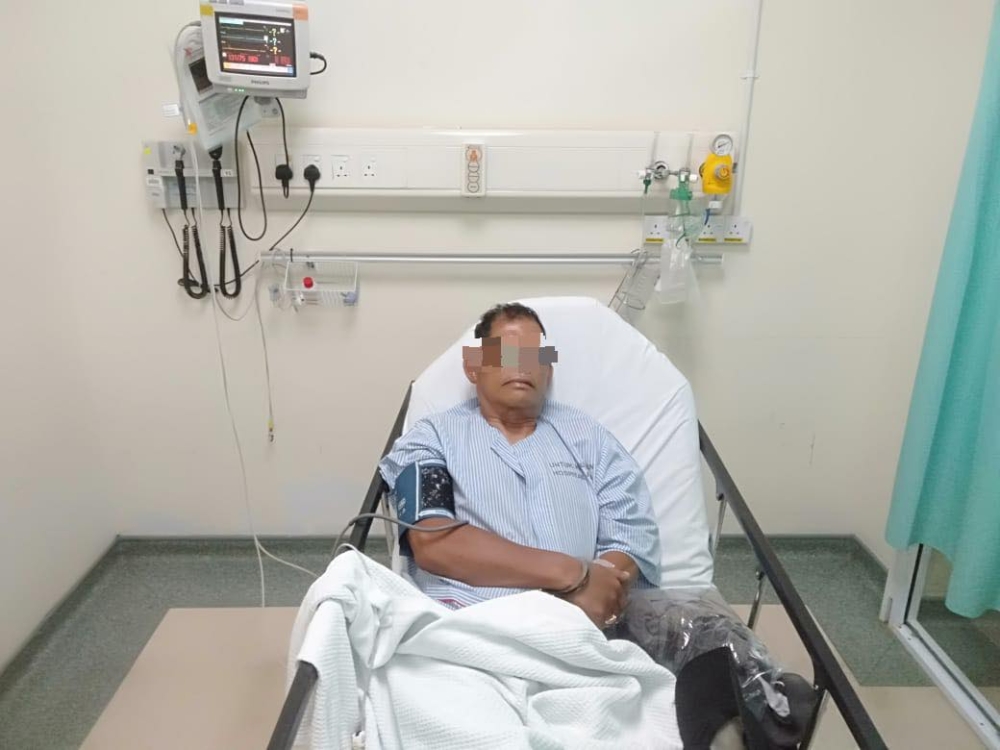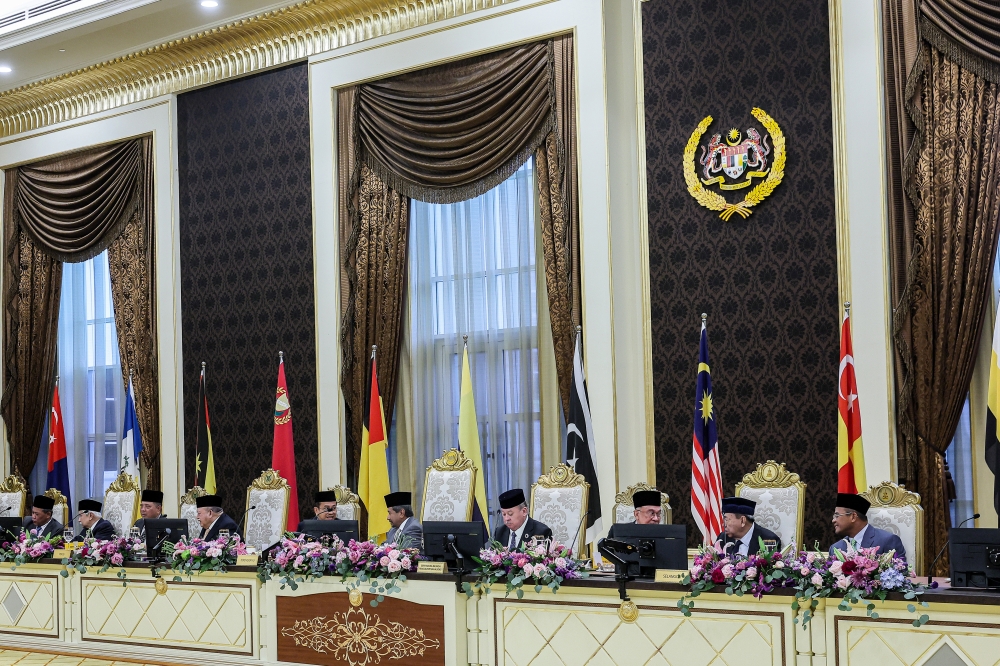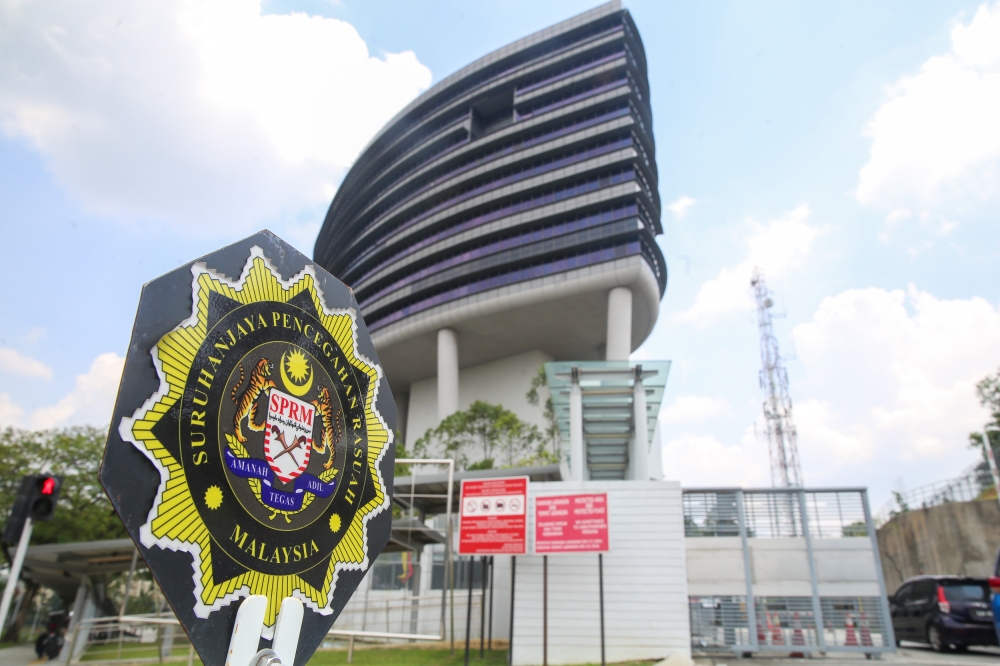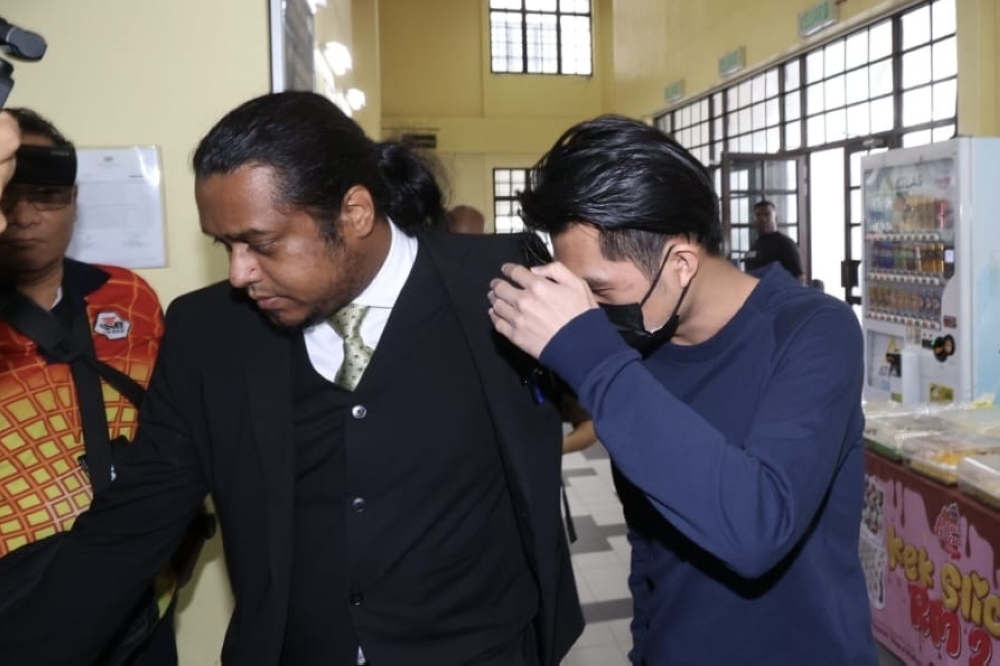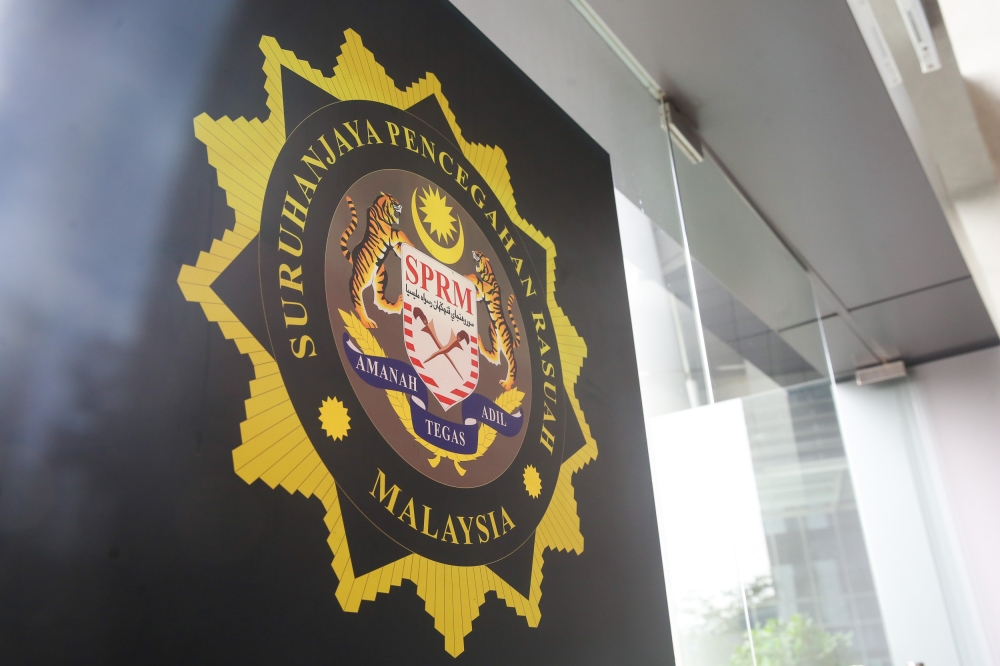KUALA LUMPUR, May 6 — Activist Haris Ibrahim and two lawyers today filed a lawsuit against the Malaysian Anti-Corruption Commission (MACC) to ultimately seek a declaration that its investigation on the trial judge in ex-prime minister Datuk Seri Najib Razak’s SRC International Sdn Bhd case is unconstitutional.
In a statement today, Haris and lawyers Nur Ain Mustapa and Sreekant Pillai said they named MACC chief commissioner Tan Sri Azam Baki, the MACC, and the government of Malaysia as respondents.
The trio said the lawsuit was filed in order to have the courts determine “important constitutional issues concerning the separation of powers and the independence of the judiciary” that have arisen as a result of the MACC’s investigation into a serving judge of the Court of Appeal.
The judge, Datuk Mohd Nazlan Mohd Ghazali, had heard and delivered a guilty verdict in the High Court against Najib over the misappropriation of RM42 million of SRC International funds. The judge has since been elevated to be a Court of Appeal judge.
In the statement issued by the law firm Messrs Malik Imtiaz Sarwar on the trio’s behalf, the three said the lawsuit — filed through an originating summons — sought two main declarations.
The first was for a declaration that criminal investigation bodies including the MACC are not entitled to or are precluded from investigating serving judges (at the High Court, Court of Appeal and the Federal Court), unless where these judges are suspended or removed respectively in line with the Federal Constitution’s Article 125(5) or Article 125(3); and/or the public prosecutor is not empowered to institute or conduct any proceedings for an offence against such serving judges.
The second is for a declaration that the MACC’s investigation into the judge Mohd Nazlan is, consequently, “unconstitutional”.
As part of this main lawsuit, the trio had also filed an application at the High Court to refer two constitutional questions to the Federal Court, in relation to the court declarations that the trio were seeking in the main lawsuit.
The statement was issued on the trio’s instructions by their lawyer Datuk Malik Imtiaz Sarwar and their co-counsel Surendra Ananth.
Surendra confirmed to Malay Mail that both the lawsuit and the application to refer questions to the Federal Court were filed at the High Court in Kuala Lumpur earlier today. The court papers have yet to be served on the three respondents of the lawsuit.
Surendra confirmed that Haris — formerly a practising lawyer — intends to practise and has applied for a practising certificate, while confirming that Nur Ain was formerly a magistrate and former registrar of the High Court and Court of Appeal and is now a practising lawyer, and that Sreekant is also a practising lawyer.
.jpg)
In the statement today, Haris and the two lawyers said they viewed the MACC’s investigation on the judge as the executive’s violation of judicial independence and the separation of powers doctrine, noting that these are matters of grave importance that affect all persons in Malaysia.
The trio also noted that the Federal Constitution guarantees access to justice administered by a judiciary free from interference of any sort, and that it also guarantees equality to all before the law and equal protection of the law.
“It is not our view that judges of the High Court, the Court of Appeal and the Federal
Court are immune from criminal investigation or prosecution. Like all of us, they must be held accountable for any crimes they may have committed.
“However, the power to investigate and institute criminal proceedings must be balanced against the need to ensure public confidence in the judiciary,” the three said.
The trio stressed that the Federal Constitution already provides a mechanism to ensure the accountability of judges in a manner that does not undermine public confidence in the judiciary, while arguing that the MACC’s investigation powers should be applied in a way that is in harmony or consistent with this constitutional mechanism.
The constitutional mechanism involves written complaints made to the chief justice — which is the highest-ranking judge in Malaysia — and where a tribunal can be appointed if the complaints warrant a judge’s removal. Under the mechanism, the judge can also be suspended.
“We believe that the MACC’s power to investigate must be read as being subject to that constitutional mechanism. A harmonised approach would allow for the preservation of public confidence in the judiciary while ensuring that judges be held accountable,” Haris and the two others who had filed the lawsuit said.
The trio noted that the federal government and the attorney-general have remained silent following MACC’s assertions that it is entitled to investigate a sitting judge of the Court of Appeal, adding: “It appears, therefore, that they agree with the view of the MACC.”
The trio explained that they felt they should file the lawsuit in court to have the constitutional questions decided upon, as the judiciary is not able to ask for court declarations on its own.
“The judiciary is therefore left without any recourse, as it is in no position to descend into the arena and seek the necessary declarations of its own accord. We were therefore compelled by circumstance to have these important constitutional issues determined,” they said.
Following blogger Raja Petra Kamarudin’s April 20 blog post against Nazlan, the judge had lodged a police report stating that the blog post contained “false, baseless and malicious” allegations intended to interfere with the justice system and judiciary.
The MACC subsequently confirmed it had opened an investigation paper in relation to the allegations against Nazlan.
The recent online attacks such as on Raja Petra’s blog against Nazlan as the SRC trial judge had started appearing just about three months after the Court of Appeal’s three-judge panel unanimously upheld the High Court’s July 2020 guilty verdict on Najib, and while the former finance minister pursues his appeal in the Federal Court.
As the Court of Appeal in December 2021 had rejected Najib’s appeal, the Federal Court is now the final court where he can appeal against his SRC conviction and jail sentence and RM210 million fine.
The hearing date for Najib’s appeal against his SRC conviction at the Federal Court has not been fixed yet, as it is still in the preliminary stages.
The Malaysian Bar on April 25 said MACC’s investigation on the judge would undermine the independence of the courts and is unconstitutional, and highlighted the existing constitutional mechanism to deal with alleged breaches of the judges’ code of ethics.
The MACC on April 28 said it was empowered to investigate corruption cases involving officers of a public body — defined under the MACC Act 2009’s Section 3 as including judges, and said it is responsible for verifying and investigating official reports or complaints made to it.
Commenting on the probe against Nazlan, MACC said it had received a complaint on March 15 and two more complaints on April 23 and April 27, and confirmed that the investigation is still in its initial phase and is of public interest.
“It should be clarified that when an investigation is conducted on any individual, it does not mean that the individual has committed an offense,” the MACC had said, also having explained the procedure where the investigation paper would be submitted to the Attorney General’s Chambers to decide on whether to prosecute or not.
Six former Malaysian Bar presidents on May 4 started an online petition by lawyers to the Bar Council to ask for a march or walk to defend the independence of the judiciary following the recent attempts to intimidate the judiciary.
The Malaysian Bar has said it would hold an extraordinary general meeting on May 27 to discuss allegations of intimidation of the judiciary and the consequences of failure to follow the constitutional mechanisms under the Federal Constitution’s Article 125.







